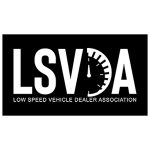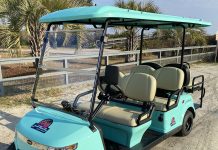PLEASE NOTE: Golf Cart Laws may vary from City to City, so please be sure to check with your local municipality in regards to the laws in your area. We are in the process of gathering laws by municipality for you, however, this is a huge undertaking and does take time. Thank you.
This is an in-depth guide to Mississippi Golf Cart & Low-Speed Vehicle Laws. We’ve created this guide to help you, the consumer, in determining Mississippi’s laws.
Is this state Medium Speed Vehicle friendly? No State Law is Currently in Place.
Is License and Registration a Requirement? For LSVs, yes. For Golf Carts, no.
General Federal Law for Golf Carts:
Under current NHTSA interpretations and regulations, so long as golf cars and other similar vehicles are incapable of exceeding 20 miles per hour, they are subject to only state and local requirements regarding safety equipment. However, if these vehicles are originally manufactured so that they can go faster than 20 miles per hour, they are treated as motor vehicles under Federal law.
The standard requires low-speed vehicles to be equipped with headlamps, stop lamps, turn signal lamps, taillamps, reflex reflectors, parking brakes, rearview mirrors, windshields, seat belts, and vehicle identification numbers.
Find out more information on federal laws pertaining to golf carts and low speed vehicles here.
Mississippi Golf Cart & Low Speed Vehicle Laws
Guidelines for Golf Carts and PTVs (Personal Transportation Vehicles)
“Golf cart” means a motor vehicle that is designated and manufactured for operation on a golf course for sporting or recreational purposes and that is not capable of exceeding speeds of twenty (20) miles per hour and is equipped with a parking brake.
Currently, there are no concrete laws pertaining to golf cart use on public roads in the state of Mississippi. For more information on golf carts and public roadways, please reach out to your local municipality.
UPDATE (5/11/18): Ocean Springs, MS has just passed a law to allow golf carts to drive on public roads alongside cars, provided the carts include a variety of safety features and stick to roads with a maximum speed limit of 30 MPH. The required safety features include headlights, taillights, brake lights, rear-view mirror, seat belts, turn signals, windshield, parking brake, and side reflectors.
Ordinances friendly to golf carts have passed in nearby municipalities of Diamondhead, Pass Christian, Pascagoula, Bay St. Louis, Waveland and Long Beach as well. View those ordinances by clicking a link below:
- Diamondhead Ordinance
- Pass Christian Ordinance
- Pascagoula Ordinance
- Bay St. Louis Ordinance
- Waveland Ordinance
- Long Beach Ordinance
Guidelines for LSV (Low Speed Vehicle)
Low-Speed Vehicles are limited to the hours between sunrise and sunset, unless the responsible governmental entity has determined that a low-speed vehicle may be operated during the hours between sunset and sunrise and the low-speed vehicle is equipped with headlights, brake lights, turn signals and a windshield.
- Has four wheels.
- Within one mile can reach a speed of more than 20 miles per hour (mph) but not more than 25 mph on a paved level surface.
- Has a 17-digit conforming vehicle identification number (VIN)
- Has a gross vehicle weight rating (GVWR) of less than 3,000 pounds.
- Must be certified to meet Federal Motor Vehicle Safety Standards (FMVSS) to be registered and operated on public streets, roads, or highways.
- Not be operated on any roadway with a speed limit above 35 mph.
- Cross state highways only at controlled intersections. Crossing at uncontrolled intersections is permitted with approval of the local authority governing that intersection.
- May CROSS roadways with a speed limit above 35 mph.
The Department of Transportation may prohibit the operation of low-speed vehicles on any highway, road or street under its jurisdiction if it determines that the prohibition is necessary in the interest of safety.
LSVs may look like a golf-cart to the casual observer, but is actually a motor vehicle requiring a valid driver license, registration, and insurance.
HELPFUL LINKS
Disclaimer
Although each of these state guides gives a thorough approach to the golf cart laws in your state, it is recommended that you perform the research on your own and reach out to your local municipality.
Recent News & Helpful Articles











